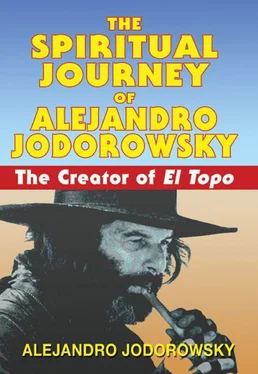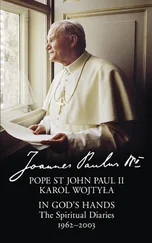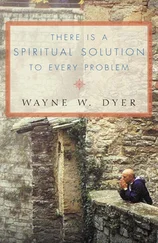Yet Ejo’s kesa seemed to be saying to me: “Do not dwell at the surface of things. Beyond the Buddha’s words, in the deepest depths, in the highest heights, lives an exalted passion. Listen to cosmic consciousness, the phoenix surging forth from the mind in flames, for it is telling you: Life is pure happiness. Birth, illness, old age, and death are four gifts as marvelous as the cycle of the four seasons. You can never be separated from those you love, for they live in you forever. You cannot be forced to be with those you do not love, for you have let go of aversion. Your light, like that of the sun, is for everyone, and you love even those who appear odious. To be unable to satisfy your desires is not suffering — the important thing is the prodigious gift of desire itself, satisfied or not, which gives you your sense of being alive.
“Go beyond this litany of The cause of suffering is attachment to desires and things , because when attachment to desires and things is free from all possessiveness, it is sublime goodness. All that appears to be impermanent is engraved in the memory of God. Every second is eternity.
“Go beyond the litany of Put an end to all attachments and end all suffering . No — we cannot end these attachments. If all is one, then how can one detach itself from itself? Attachment through love is the way of realization. Eternal being is attached to you with an infinite tenderness.
“Go beyond even the litany of the Buddha’s Eightfold Path of ending suffering by right seeing, right thinking, right speech, right action, right livelihood, right effort, right attention, and right concentration. Free yourself from all conceptual chains; trust in the wisdom of Creation. You are not merely a part of Creation, you are Creation. To live in full happiness, walk in the infinite, pathless land. Let your eyes see what they invite you to see; do not put blinders on them. Let your thought wander in all dimensions, let your every word be rooted in your heart, act like a beloved child of beloved parents, see a thousand lives in one life. Make no effort; instead, allow things to happen through you, for every natural act is a gift. Right attention and right concentration are the offspring of a passionate love. Think, feel, desire, and live with pleasure. A cat makes no effort to concentrate when it sees a mouse.
“Go beyond the litany of Everything arises from ignorance. Why must we be born? Why must we die? Unity is total knowledge. When you become one with it, there is no ignorance. When the sun appears, darkness dissipates. We must die in order to be born. Existence venerates death; it does not deny it. There is no will to exist, for we already exist eternally. Anxiety to live is born of a lack of generous contact with the world, which is neither inner or outer, because there is no separation. To look is to bless; to hear, touch, feel, taste is to bless. The body, soul, spirit, and mental functions are one and the same. Ignorance is the desire to separate ourselves from them.
“Go beyond the litany of Everything changes ceaselessly. Everything passes. Everything is impermanent. Nothing is permanent . In God, nothing changes ceaselessly. Everything is permanent, eternal, infinite. Nothing passes away.
“Go beyond the litany of All is emptiness, ku, zero point . Nothing is ku; emptiness is an illusion. All is filled with God.”

At one crucial moment, as the rough cloth adhered to me, pressing upon me as if glued to my skin and bones, immobilizing me in a centuries-old posture while my thoughts flooded like a torrent in all directions, transforming legends, presuppositions, and written ideals into a mummified skin, Ejo Takata spoke to me in a voice full of kindness: “You are constructing everything that you think around the word God . If I took this word away from you, you’d have nothing left. Tell me: What is God for you?”
The first thing that came to mind was the definition that had fascinated poets and philosophers through the ages, from Hermes Trismegistus all the way to Jorge Luis Borges, including Parmenides, Alain de Lille, Meister Eckhart, Giordano Bruno, Copernicus, Rabelais, Pascal, and so many others. So I replied: “God is an infinite sphere whose center is everywhere and whose circumference is nowhere.”
Then, to head off any possible critique from Ejo about my intellect needing to die, I shouted: “Kwatzu!”
But then I had to confess, in a grumbling voice, that this definition was unacceptable even to me, because as soon as it was formulated in my mind, it became just one more prison. There are thinkers who are seduced by the sublime, geometric beauty of it, the sphere being the most perfect of all forms for them, but for a lover of organic beauty, a tree, a leaf, or an insect could be a better incarnation of perfection. Defining God as an infinite sphere is as absurd as defining God as an infinite fly. In any case, the infinite is beyond form by its very nature. Besides, because the center is everywhere and the circumference nowhere, there can be no parts. If all is center, what does center mean? A center requires something other than itself. It is absurd to speak of a center while affirming that this center is the only thing that exists. It is the same as saying: “God is an infinite human whose navel is everywhere and whose skin is nowhere.”
This provoked Ejo to a fit of uproarious laughter. Then he became serious again. “You still haven’t answered my question. All you’ve done is quote someone else’s definition, and then criticize it. Consult your hara *33and then reply.”
“Ejo, my reason is always seeking distinctions and limits. It can neither define nor explain nor understand a reality in which absolutely everything is united and forms one unique truth, but if we grant that no concept is reality, that it is only a limited sketch, I can learn to use words not as definitions of the world, but as symbols of it. A symbol allows for a vast number of meanings, as many as there are individuals to perceive it.
“For me, the ‘personal’ God, the prime actor of every sacred work, cannot have a geometrical, mineral, animal, vegetable, human sexual, racial, or other form. He cannot even have a name and cannot be the special property of any religion. Any quality or category that I might give him would amount to only a superstitious approximation. He is impossible to define with words or images and inaccessible to search for. It is absurd to say anything about God. The only possibility that remains: to receive him. But how? How can I receive what is inconceivable, ungraspable? I can do so only through the changes and mutations that it works in my life in the form of clarity of mind, happy love, creative capacity, and a joy in living that remains in spite of the worst suffering. If I imagine God as eternal, infinite, and omnipotent, it is only by contrast with what I believe myself to be: finite, ephemeral, and impotent in the face of the transformation known as death. Yet if everything is God and God does not die, then nothing dies. If everything is God and God is infinite, then nothing has limits. If everything is God and God is eternal, then nothing has a beginning or end. If everything is God and God is omnipotent, then nothing is impossible. Though I cannot name that or believe in that, I can still intuitively sense it in my deepest being. I can accept its will, a will that creates the universe and its laws. And I can imagine it as allied to me, whatever happens.
“It’s true that I need not say all this. Words are not the direct way — they point, but they do not go there. I accept that I belong to this unfathomable mystery, an entity without being, nonbeing, or dimension. I accept to surrender to its designs, to trust that my existence is neither an accident nor an illusion nor a cruel game, but an inexplicable necessity of its work. I know that this permanent impermanence is part of what my mind calls the cosmic plan. I believe that even if I am an infinitesimal cog in an infinite machine, I participate in its perfection, and that this destruction of my body is the portal I must cross to submerge myself in what my heart feels as total love, what my sexual center feels as infinite orgasm, what my intellect calls radiant emptiness, and what my body considers its mysterious home. If we are one with the universe, then it is our temple. We are renters beholden to a landlord who feeds us and supports and sustains us in life for the lot of time according to his will. This house is our certain refuge, but we can make it into either a Garden of Eden or a garbage dump. It can be a place of flourishing creativity or a dark, stinking realm where bad taste reigns. Between these impenetrable walls we can either thrive or commit suicide. The house of God does not behave in a certain way — it is simply there. Its quality depends on the use we make of it.”
Читать дальше













